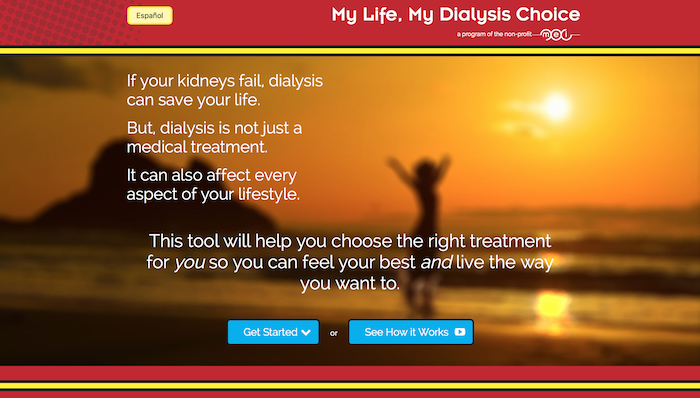Kidney Failure is Bad News—But, Dialysis is GOOD News

Probably 20 years ago, MEI did a small phone study with a convenience sample of nephrologists—a dozen or so. While we never published the results, they were illuminating and we still keep them in mind to this day. We asked three questions: “Why did you choose nephrology?” “What is the best part of your job?” and, finally, “What is the worst part of your job?”
Essentially, to a man (no women took part, as I recall), we learned that nephrology was appealing because of its complexity. Along with endocrinology, it is perhaps the most physiologically complex internal medicine subspecialty. The smartest doctors chose it. And, nephrologists highly valued the long-term connections they formed with their patients—which was universally the best part of their jobs. The worst part? Giving patients the “bad news” that they needed dialysis.
In the past few months, I’ve asked more nephrologists these same three questions—and gotten virtually identical answers. So, though the samples are small (and if you are in a position to do a large scale survey, by all means have at it), it seems our findings just might be pretty robust. But, is dialysis “bad” news? I don’t think so. Let’s unpack that a bit.
Of course, no one wants to tell a patient that the steps they’ve been taking to slow the progression of CKD are no longer working, and kidney function has dropped to the point where renal replacement therapy is needed. This is a “difficult conversation”—and nephrologists largely receive no training in how to conduct difficult conversations. Imagine, though, how much more difficult the conversation would be if the condition was lethal and had no life-sustaining treatment options. Here’s a partial list from Wikipedia:
- Alzheimers
- Amyotropic lateral sclerosis (ALS)
- Creutzfeldt-Jakob
- Fatal familial insomnia
- Fibrodysplasia ossificano progressiva
- Glioblastoma
- Huntington’s disease
- Muscular dystrophy
- Progeria
- Rett syndrome
Please don’t make dialysis into the boogeyman in the closet or a punishment for failure to “comply” with difficult lifestyle changes that most of us would have a hard time succeeding with. Dialysis is hope. Dialysis is GOOD news, not bad news. With good dialysis—which, admittedly, not nearly enough Americans receive—people can live for decades after their kidneys fail, and live well and fully. If they choose an option that is a good fit for their values and lifestyles, they can work, travel, eat a less restrictive diet, be intimate with a partner, have children and care for pets. GOOD news. Kidney failure is bad news . No one wants their kidneys to fail, and no one could blame patients for being devastated—but it can be treated. Imagine how differently patients will frame dialysis to themselves if they feel lucky to have dialysis and their subsequent lives, rather than burdened by it.
You can be certain that the patients who were selected by “Life and Death committees” in Seattle to receive dialysis in the 1960s when the costly treatment was scarce feel lucky. Some of them are still alive today. So, share this history and help patients frame dialysis as the life-saver it still remains. Doing this—and using our My Life, My Dialysis Choice decision aid to see what each patient cares about (and is motivated by) can make a difficult conversation much easier.



Comments
Oscar
Feb 05, 2021 10:44 PM
Steve
Oct 25, 2019 4:03 PM
Dori
Oct 28, 2019 2:23 PM
JoAnn Soyka
Jun 23, 2018 2:15 AM
Dori
Jun 25, 2018 6:13 PM